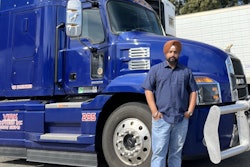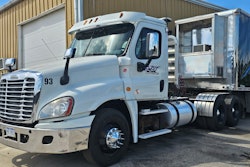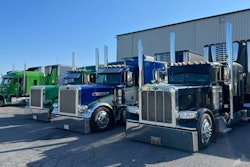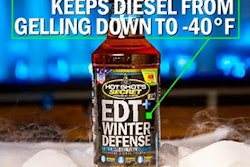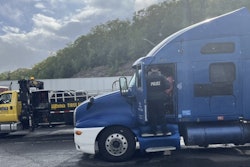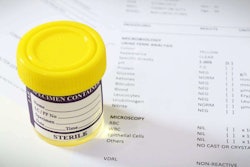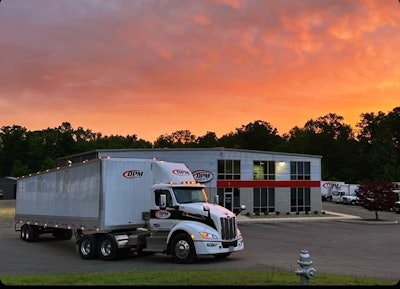
Dave Monsell, owner of Ashland, Virginia-based DPM Logistics, has been around trucking most of his life. He grew up around it in the coal mines of Pennsylvania, then after a stint in the Air Force, he moved to Virginia and went to work as an owner-operator for a moving and storage agent. That was in the late 1970s and early ‘80s.
Yet he sold the truck and opened a truck repair shop. The Fleet Manager opened in 1987 as a medium-duty shop. In 1996, he acquired a dealership in Norfolk, Virginia, and renamed the business The Truck Source.
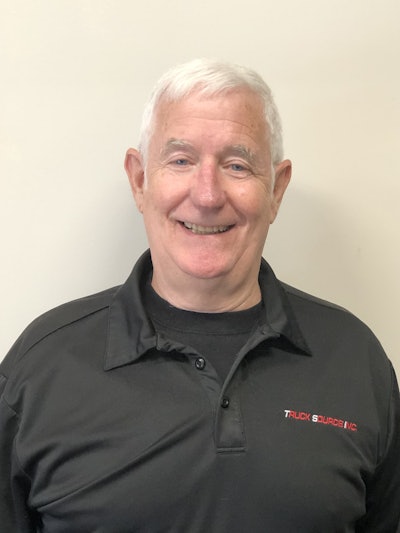 Dave Monsell
Dave Monsell
DPM operates as a regional carrier covering Virginia, Maryland, Pennsylvania and Ohio, with a majority of the 11-truck fleet’s work being drop-and-hook with contract customers. Monsell said that makes up about 70% of the fleet’s business, with another 20% being steady brokered freight, the final 10% spot market freight.

Monsell’s dedicated work, efforts to take care of his drivers and more earned his selection as a semi-finalist in Overdrive’s Small Fleet Champ competition in the 11-30 trucks division.
[Related: Twice the trucks in just a year: Growth follows demand for Brian Brewer Trucking]
Building relationships: ‘We sell on-time and safety’
After jumping into fleet ownership in 2016, Monsell just “kept knocking on doors until we built some relationships,” he said. “It just blossomed for us somewhat. Good service trumps everything,” and he quickly discovered that, once he got a chance and proved that lynchpin quality of a phenomenal trucking company, “good service equals more freight.”
The key to trucking and building customer relationships: “We sell on-time and safety,” he said.
Yet DPM got its start like so many small fleets and owner-operators with authority: working the spot market to keep its trucks moving. “It took us two years to really start cracking the code and just getting the chance,” he said. “Finding the right person to build a relationship with, and then they give you a chance.”
He said he focused early on smaller brokers, while also working to get a foot in the door with the bigger shippers in the area.
“I just can’t say enough about it,” he added. “If you provide reliable service, you grow. You can grow as fast as you want to grow.”
John Franssen, sales manager with DPM customer Lawson Transportation, said he’s been working with Monsell “for many years. I wish other carriers were on top of things like DPM.”
Franssen works with a number of carriers in his role, but he knows he “can always count on DPM,” he said. The fleet’s “drivers are professional and represent DPM very well.... Dave treats my customers like they were his, which is a good thing,” Franssen added.
 This is one of several Small Fleet Champ semi-finalist profiles that will air through next week. (Access all of the published profiles via this link.) Two finalists in each category (3-10 trucks, 11-30 trucks) will be announced October 11.
This is one of several Small Fleet Champ semi-finalist profiles that will air through next week. (Access all of the published profiles via this link.) Two finalists in each category (3-10 trucks, 11-30 trucks) will be announced October 11.
[Related: Owner-ops see mixed income gains with costs down, but wait for 'kickstart' on rates]
“The seats are full and we’re keeping the trucks moving, and we’re still maintaining a profit,” Monsell added. “I think that’s a big deal in this day and age. I’ve never seen anything like this, but it’s just too much capacity. It seems like the truckers and farmers are in the same boat at the moment. Nobody’s making any money. Nobody can believe how little they’re getting for their product.”
When starting DPM, Monsell said he knew he wasn’t “interested in growing a big trucking company,” he said. “I always felt that the 15-25-truck range is the area where you can provide good service.”
He looked around at other trucking companies in his region that were between 25 and 50 trucks, even up to 100 trucks, to determine how quickly they grew through the years. He calculated it out to be by about 1-2 trucks a year.
He kept that figure in mind as a benchmark and has tried to stick close to that growth rate. “It’s not a perfect straight lineup, especially right now,” he said. In 2022, he had 14 trucks, but he had some issues with some 2023-moderl-year units and sold a few when the used truck market was near its peak.
That put DPM at 12 trucks until, back in May, the fleet had its first accident -- a driver had an oak tree fall right in front of him while driving, Monsell said. With nowhere to go, the driver struck the tree, causing the truck to leave the roadway and roll over, destroying both truck and trailer. Thankfully, the driver only needed a couple of stitches for injuries sustained in the crash. That took the fleet down to 11 trucks, where it remains today. “I don’t know if I’m going to [replace the truck] this year or not,” Monsell said. “So, 12 is kind of our sweet spot, but it’s a little bit slow right now and I’m not missing the 12th truck.”
Looking ahead, though, Monsell said he’s still eyeing that 15-25 truck range for where he wants the fleet to be when the economy turns the corner.
[Related: When will freight markets turn to the positive for truckers?]
Managing business, servicing equipment
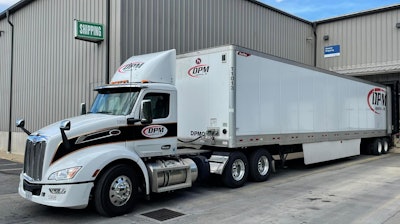 The majority of DPM Logistics' trucks are Peterbilts, with a few Freightliners as part of the fleet as well, split 50/50 with day cabs and sleepers for the company's regional work.
The majority of DPM Logistics' trucks are Peterbilts, with a few Freightliners as part of the fleet as well, split 50/50 with day cabs and sleepers for the company's regional work.
Monsell said that by next June, three quarters of the fleet’s 48 trailers will be paid off, and all of them are less than 7 years old. The oldest tractor in the fleet is a 2020 model.
“We’re in good shape from the standpoint [that] we have little to no debt, we have our own building. We’re here, we can survive,” he said. “We can turn a profit at what’s going on and our costs are in line. We’re running it really tight, but we’re still paying at the top end of the scale, so we’re keeping good people.”
Located in Virginia, a lot of the lanes DPM runs take operators through large East Coast cities like D.C., Baltimore, Philadelphia and Harrisburg. “We run in a lot of congestion,” Monsell said. Because of this, all of his drivers are paid by the hour.
This has also benefited the fleet in terms of safety. A DPM driver’s “getting paid the same amount of money running 70 miles an hour as he’s getting paid to run zero miles an hour. It definitely helps on the safety aspect … our safety score is second to none.”
When drivers take vacation time, they are paid at 10 hours a day instead of 8 because at 8 hours, “if a guy works 11-12 hours a day, and then he wants to go on vacation, he’s used to that kind of money. He can’t afford to go on vacation. So, we increased that so..., if he takes a week off, he gets paid for 50 hours.”
Other benefits include health insurance, paid life insurance and paid disability insurance.
The company is currently in a holding pattern on equipment purchases waiting for the economy to turn around. Prior to the current downturn, DPM was on a 2.5-3-year trade cycle on trucks and a 5-year trade cycle on trailers. “We just went in holding patterns and started paying stuff off” when freight turned down, he said. “We’re just paying off equipment and not buying trucks. That’s about the only place we had to go” to adjust the business for the downturn.
[Related: 'Not gonna be a guinea pig': Owner-operators wary of maintenance unknowns with EPA 2027]
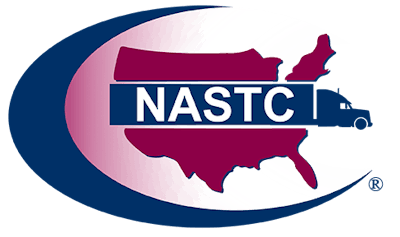 The National Association of Small Trucking Companies is sponsoring this year's Small Fleet Championship program. Finalists receive a year's worth of membership in the association, with access to a myriad of benefits from NASTC's well-known fuel program to drug and alcohol testing services and much more. All will be recognized at the association's annual conference, where the winner will be announced November 7 in Nashville, Tennessee. Find more about the association via their website.
The National Association of Small Trucking Companies is sponsoring this year's Small Fleet Championship program. Finalists receive a year's worth of membership in the association, with access to a myriad of benefits from NASTC's well-known fuel program to drug and alcohol testing services and much more. All will be recognized at the association's annual conference, where the winner will be announced November 7 in Nashville, Tennessee. Find more about the association via their website.
Monsell's slight downsizing last year after issues with a batch of 2023-model trucks followed purchasing four of them in 2022 and experiencing injector and wiring issues “causing a great deal of unreliability,” he said. “I sold two of them off … when the used truck pricing was just through the roof, and I was sick of these things. I mean, they’re under warranty,” but “they end up in the shop for 30 days. It’s hard to make money with that.”
The two of those units he did keep, DPM's been able to work “through most of the problems with them,” he said. Owning its own shop has benefited the trucking side of Monsell’s business, as all of the fleet’s maintenance is done in-house. Two of the diesel techs at Truck Source are factory-trained by Peterbilt, and three have been factory-trained by Cummins. They're able to do their own warranty work in a lot of situations.
“We can’t go internal engine or anything like that,” with the warranty service, “but we haven’t had that issue anyway,” he said.
All of DPM’s trucks come into the shop every 10 weeks for general maintenance. With the oldest truck in the fleet only having 450,000 miles on the clock, extensive maintenance work generally isn’t necessary. All of the trucks also get washed weekly.
DPM also has its own fuel on-site, and being a local/regional fleet, trucks only fuel up off-site maybe 25% of the time, Monsell noted, which results in fuel savings of around 70 cents a gallon, he’s found.
[Related: Dedicated lanes, dedicated to operators: Virk Express masters California produce]




